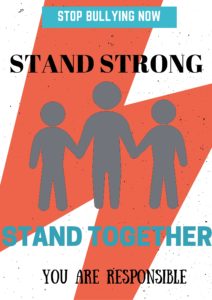Intervention
Posted by Eric Olsen, Marial Williams, Anna Burns, Katrena Gillis at Friday, May 22, 2015 4:39:07 PM CDT
Intervention is defined as the act of coming between as to prevent or alter a future course of events. Throughout the movie Bullying, both child and parents try their best at intervening in some shape or form, usually with little changing. Even involving the administrators of the children, the people specifically set in charge of dealing with bullying situations were not able to prevent or change the circumstances that plagued these bullied children. The degree to which intervention is implemented in schools, of any age where bullying exists, is to create programs that foster anti-bullying and reason with their students on how their actions impact their fellow classmates. This is especially vital in cases of sexual orientation or disabilities where bullying runs rampant and rarely gets prevented. The culture of these institutions needs to be reformatted to include anti-bullying programs to best ensure their students a safe and loving educational environment.
At its core, social justice is the view that everyone deserves equal economic, political and social rights and opportunities. In regards to bullying, this creates a much more holistic approach that is unfortunately very difficult to maintain and implement. Social justice requires people, in this case adolescents, to see the differences in the people around them and treat all people with the same level of respect and dignity. Currently, children perceive the differences in their peers around them and act on them, resulting in bullying. Children want to feel important and special over the people around them and are willing to achieve this standard, even if it means ridiculing their classmates. If social justice was implemented and accepted, children would understand the effect their words/actions have and would improve virtually every aspect of bullying. With this approach not only would current bullying cease, it would prevent future bullying from happening due to everyone involved understanding the consequences for their actions.
An approach like this would also require a major shift in the views of society. Masculinity has been so ingrained into our society that bullying, to some extent, has been encouraged. It is considered masculine to be dominant and aggressive over those around you. Changing the landscape of bullying would require younger boys to realize that bullying is not the outlet to channel these masculine tendencies, but rather through other outlets like sports or hobbies. Exerting your ability in a hobby is far less harmful than showing your power in degrading another human being. While this will not be easy, through the right programs and determination boys can be changed and can learn that bullying is not a healthy path for anyone.
Social justice directly affects intervention because it teaches all parties involved to be active in confronting the bullying around them. Everyone ‘buys-in’ and takes responsibility for their actions in creating an equal environment for all, refusing to let injustices prevail. A social justice system would also likely be effective, if all accepted, due to its easy conversion to a broad range of factors that involve bullying like sexuality, race, or class. In essence, intervention would no longer be needed because bullying would be eliminated, after the system was in place. However, in the developing stages of a social justice system, intervention would be encouraged from a variety of sources, empowering those to act on the differences they observe.
telling stories, hearing lives
© 2025 Cultures of Engagement
Theme by Anders Noren — Up ↑


Recent Comments